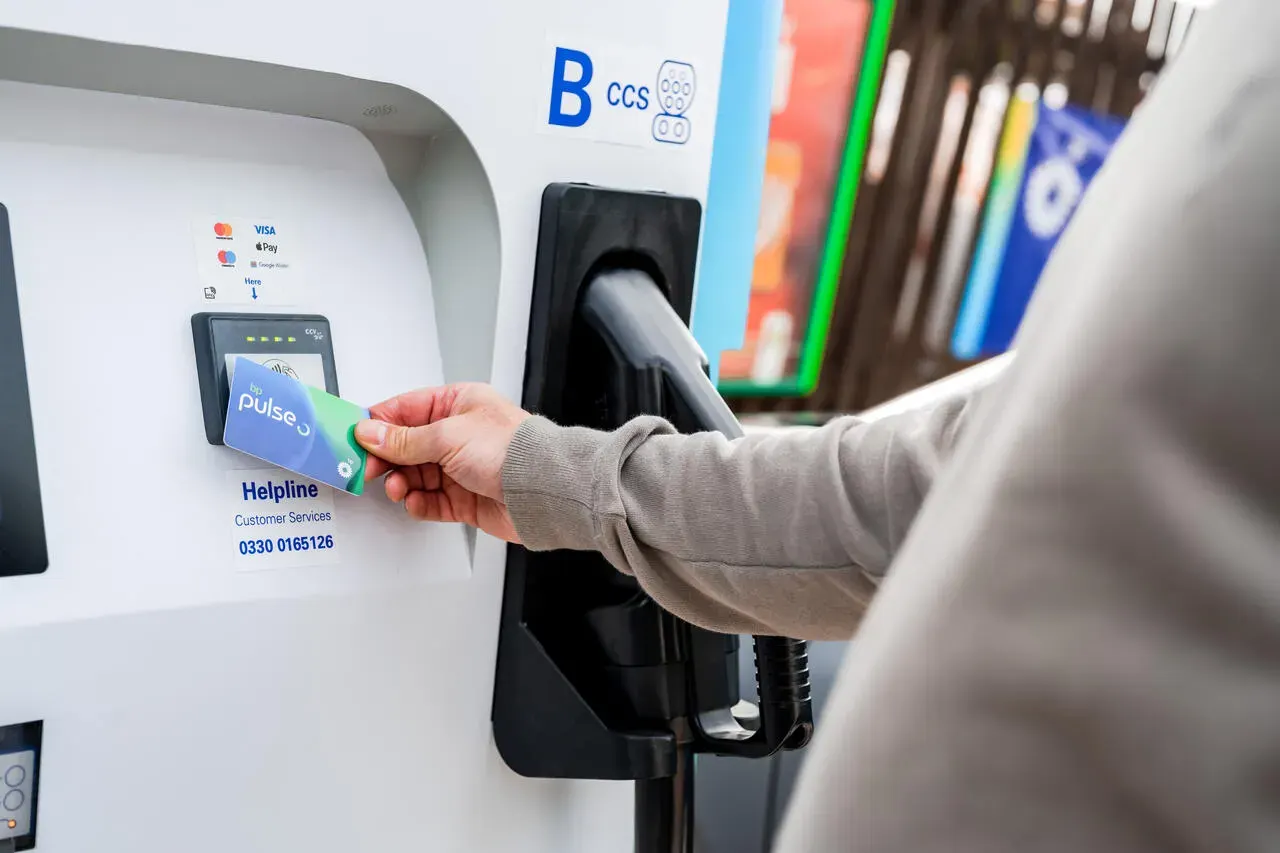Answers
1) Range is the distance your EV can travel before needing to recharge.
2) Yes, cabin heating, phone charging, and audio can use up power, reducing overall range. So, if you're low on charge, you may need to hit a few off buttons.
3) Automatic. So, your gear-crunching days are over.
4) Yes, the hardware is built to be fully waterproof. Quick, move on before we start moaning about the weather.
5) The charger and the connector. Know before you go with the bp pulse app.
6) Turn it off. Sounds obvious, but it's easy to forget after a long drive.
7) Yes, it can help prolong battery life. The battery finds it easier to charge when it's a little empty, causing it less stress.
8) No, your EV also uses regenerative braking to supply a small amount of energy to the battery. It's hard to believe, but there's actually a reason to be cheerful about stop-start traffic. Find out how regenerative braking works.
9) Yes, EVs have fewer components than petrol or diesel vehicles, so there's less to maintain.
10) The battery is an excellent place to start.
11) Yes, EVs cruised past the million mark last year.
12) Yes, you can. But as EVs are automatic, you won't be able to get behind the wheel of a manual.
13) Yes, at the time of writing, EVs are exempt from the ULEZ and low emission schemes in other cities. But it's always worth keeping an eye on the rules.
14) Grab that dusty book next to the melted choccy bar in your glove box. That's right, check the manual.
15) Yes, different EV models can support different rates of charging. The lower your car's maximum rate, the slower it will charge. Find out more about factors that affect charging power.
16) kWh is a unit of energy a battery can store. That's worth storing in your brain if you didn't know.
17) At home. Ah, there's no place like it.
18) Yes, DC is normally faster than AC. Learn more about the difference between AC and DC charging.
19) A charging curve refers to an EV charging at different speeds during a single charging session.
20) Your route so you can plan where to plug in.
21) It can make it charge slower.
22) Yes, icy conditions can mean your battery obtains less charge from regenerative braking.
23) Use the bp pulse app to find chargers not being used near your location and head on over.
24) A bp pulse subscription can help you save over 20%
25) Yes, in hot weather, your battery may charge slower.
26) Yes, if many electric cars start charging at the same time, some sites will temporarily lower the charging speed across every charger to manage the energy they receive from the national grid.
27) The 19th century. The first EV was built in 1828 in Hungary, but there’s some dispute over who was responsible. Learn more about EV history.
28) Yes, when you pull into a charging station, make sure you're not blocking any other bays so that other EV drivers can still get to charging spots.
29) No, you can leave your car, but it's best to reappear at least a few minutes before its charged. Getting away quickly means if other drivers are waiting to use the charger, they can do so.
30) No, you can pay for EV charging without an app. If you're a bp pulse subscriber or pay as you go customer, you'll receive a bp pulse charge card, which you can simply tap against a charger to start and finish your charge. Alternatively, our chargers accept contactless payments, via card or contactless-enabled mobile devices (with the exception of 7kW chargers). You can also pay online, via our online payment portal.










